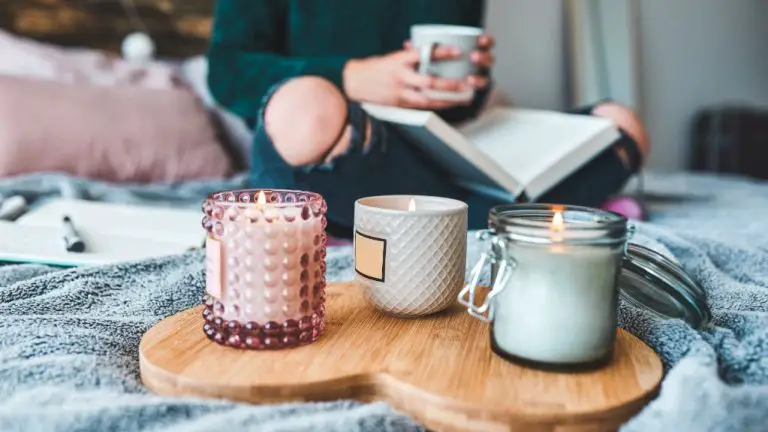Do Diffusers Make Your House Smell Good?
What Are Diffusers?
Diffusers are devices that work to disperse essential oils and scents throughout the air in your home. They utilize a few main methods to effectively spread aromas and fragrances to create a pleasant ambiance.
One of the most common types of diffusers is an ultrasonic or humidifying diffuser. This type uses electronic vibrations to diffuse and atomize essential oils into a micro-fine vapor that is dispersed into the air. The vapor humidifies and lightly scents the surroundings.
Another popular style is the evaporative diffuser which uses a fan to blow air across a felt pad or absorbent material that contains the essential oil. As the air passes over it, the oil evaporates and enters the air.
There are also nebulizing diffusers which use pressurized air to create a fine mist of essential oils that is sprayed out. Reed diffusers take a simpler approach by relying on wooden or rattan reeds to draw up and disperse the scent.
With many options available, diffusers allow you to experience and enjoy the aromatic benefits of essential oils in your home or office.
Popular Diffuser Scents
Diffusers allow you to fill them with your favorite essential oils and experience the wonderful aromas as they spread throughout your home. Some of the most popular scents used in diffusers include:
- Lavender – Known for its relaxing and stress-relieving properties
- Eucalyptus – Often used to promote easier breathing and open airways
- Peppermint – Provides an invigorating scent that can boost energy and focus
- Lemon – A refreshing, mood-lifting citrus scent
- Tea tree – Has a crisp, uplifting aroma and promotes a clean environment
- Bergamot – A sweet, citrusy scent that helps provide calm and balance
- Rosemary – An herbaceous scent thought to improve memory and cognition
- Cedarwood – A woody, comforting aroma often used to ease tension
- Frankincense – Known for its earthy aroma and soothing properties
- Ylang ylang – Has a delicate, floral scent that evokes relaxation
You can create custom blends to meet your needs and preferences. Diffusing certain scents can help set the mood – whether you want to feel calm and relaxed after a long day, energized and focused when working, or uplifted when you need a positive boost.
Do Diffusers Effectively Spread Scents?
The effectiveness of diffusers at spreading scents depends on several factors. Scientific research has found that factors like room size, air circulation, oil viscosity, and diffuser technology impact how well diffusers disperse aromas.
Studies show essential oil molecules dissipate into the air and spread out in a room through diffusion. How far and wide the molecules travel depends on air currents and ventilation. In a small enclosed room, diffuser scents tend to concentrate more than an open concept space. The viscosity of oils also impacts diffusion, with lighter oils like lemon and bergamot diffusing more rapidly than thicker oils like sandalwood or patchouli.
Newer diffuser technologies like ultrasonic and nebulizing diffusers atomize oils into micro-fine vapors that remain airborne longer. This allows the aroma to spread to a larger area compared to heat or fan diffusers. Research indicates ultrasonic diffusers can effectively scent up to 540 square feet, while nebulizers can diffuse up to 1,000 square feet. However, the fragrance is often more concentrated closer to the diffuser.
So in summary, diffusers can effectively circulate scents, especially lighter oils, in small to medium-sized rooms. Factors like ventilation and technology impact diffusion range. But in general, having a diffuser in the right sized room helps fragrance the air.
Impact on Mood and Well-Being
Scientific research shows that certain scents can have a measurable effect on mood, emotion, and cognition. Studies indicate that pleasant, calming fragrances from essential oils or scented candles can promote relaxation and reduce anxiety. Other scents are linked to boosted energy, positivity and even pain relief.
Aromatherapy diffusers allow you to fill a room with calming lavender, uplifting citrus, or other mood-enhancing scents of your choosing. The ambient aromas create an atmosphere that can aid relaxation, improve sleep, and elevate your overall sense of wellbeing.
Inhaling soothing scents sends signals to the brain that slow down heart rate and lower blood pressure. Terpenes and phytoncides released into the air also have anti-inflammatory and anti-stress effects. There may also be a placebo component, as we instinctively associate certain natural scents with peace, joy, or tranquility.
Overall, using an aromatherapy diffuser to infuse a space with carefully chosen essential oils can promote an environment that feels calmer, happier, and more relaxing. But perceived benefits will depend on the individual and oil blend.
Cleaning and Maintenance
Properly cleaning your diffuser is key to avoiding the buildup of mold and bacteria. Be sure to use cleaning solutions specifically designed for diffusers, like vinegar mixed with water, to break down essential oil residue.
It’s also important to use high quality, therapeutic-grade essential oils. Lower quality oils can contain synthetic ingredients and other impurities that gunk up diffusers over time.
Always follow the safety guidelines provided by your diffuser manufacturer. Unplug the unit and allow it to fully cool before wiping down all surfaces with a damp cloth. Never submerge the electric diffuser base in water. Change water and clean every 2-3 days.
By practicing proper diffuser hygiene and using only pure, undiluted oils, you’ll get the most effective aroma diffusion and longest product lifespan.
Potential Downsides of Diffusers
While diffusers can make your home smell pleasant, there are some potential downsides to be aware of:
Cost of Oils: Diffuser oils can be expensive, especially if you use them frequently. The cost adds up over time, which may be prohibitive for some households.
Skin/Respiratory Sensitivities: Essential oils used in diffusers can irritate skin and airways for those with sensitivities. Some people may experience headaches, breathing issues, rashes, or other reactions from diffuser scent exposure.
Overpowering Scents: Diffusers disseminate scents rapidly. The smells can become too strong and overwhelming in enclosed spaces. It’s important to use diffusers sparingly and open windows if scents ever become too potent.
Diffuser Use Tips
Getting the most out of your diffuser requires using some best practices. Here are some tips for maximizing diffuser effectiveness:
Choosing the Right Location
Place your diffuser in a central area where air circulation will spread the scent effectively throughout your home. Good spots are open concept spaces, hallways, and main living areas. Avoid putting diffusers in corners or enclosed rooms where the scent may get trapped.
Pairing Scents Effectively
Choose complementary, harmonious scents that work well together. For example, pair fresh scents like lemongrass with clean scents like lavender. Or try layering woodsy scents like cedarwood with comforting bakery scents like vanilla. Avoid mixing scents that clash.
Using Timer Functions
Many diffusers have timer functions that allow you to run them for specified intervals, such as an hour or few hours. Make use of these to avoid overwhelming your space with scent. You can set your diffuser to run for a few hours in the morning and evening when you want fragrance throughout your home.
Comparisons to Candles
Diffusers have some key differences from candles that are worth considering:
Pros: Diffusers do not have an open flame like candles, making them safer. They also do not produce smoke or soot. Diffusers spread scent more evenly through a space.
Cons: Candles can provide visual ambiance with their flame and are nostalgic for many people. Some feel candles have a stronger scent.
Air Quality: Diffusers do not reduce air quality like burning candles can. Candles release compounds like toluene, benzene, and acetone into the air which can be problematic. Diffusers don’t have this issue.
Cost: Diffusers have higher upfront costs for the unit, but reuse the same oils. Candles are cheaper up front but the oils are used up with each candle. Over time, diffusers can be more cost effective.
Comparisons to Plug-Ins
Plug-in air fresheners are a common alternative to diffusers. Here’s how they compare:
Pros: Plug-ins are inexpensive to buy initially. They provide continuous fragrance as long as the cartridge lasts. Many plug-in scents are strong and long-lasting.
Cons: Plug-ins use synthetic fragrance oils and chemicals to emit scent. These ingredients can be irritating and even toxic with long-term exposure. Plug-ins simply mask odors rather than eliminating them. Refill cartridges are ongoing costs. The scents can be overpowering and unnatural smelling.
In contrast, diffusers use natural essential oils that are gentle and contain no chemicals. Diffusers actually purify the air while adding subtle, pleasant fragrances. While the upfront cost of a diffuser and oils is more, there are no cartridges to keep buying.
Overall, diffusers tend to provide a safer and higher quality fragrance experience than chemical-based plug-in air fresheners.
The Verdict
Ultimately, the verdict on diffusers is that they can be an effective way to spread scents and fragrance throughout your home. When used properly with good quality oils, diffusers release a fine, fragrant mist into the air that can subtly scent multiple rooms. The gentle diffusion method helps the scents linger without becoming overpowering. Diffusers come in many styles to suit different spaces, and their quiet operation and soft LED lights can contribute to a relaxing ambiance.
However, diffusers do require some maintenance and care to work optimally. It’s important to clean them regularly, use the right amount of water and oil, and properly care for your essential oils. Battery-powered diffusers may not run as long as plug-in models. Diffuser scents also won’t appeal to everyone, so consider individual preferences. But with reasonable expectations and proper use, diffusers can be an excellent way to keep your home smelling fresh.
When using a diffuser, it’s recommended to start with shorter runtimes to test scent strength. Monitor oil usage and adjust as needed. Clean the diffuser routinely by following manufacturer instructions. Use 100% pure essential oils and don’t overload the reservoir to avoid leaks. Place diffusers in areas that will optimize fragrance circulation. Rotate scents to avoid olfactory fatigue. Consider combining diffuser use with other home fragrance methods for balanced coverage. With some trial and error, diffusers can be an effective, convenient and safe way to scent your home.



